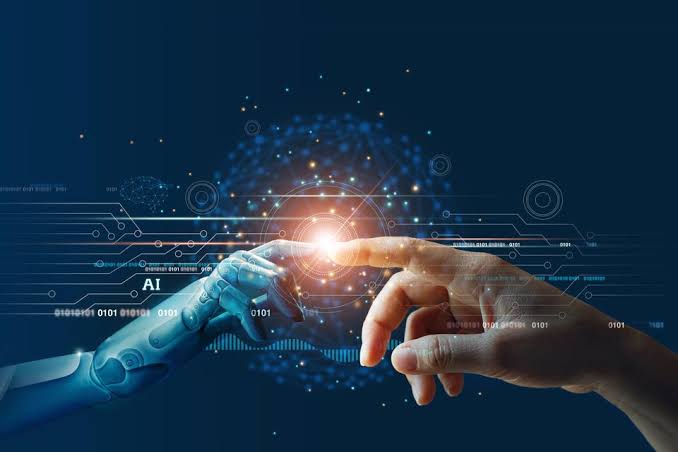Artificial Intelligence (AI) brings in numerous benefits, changing various aspects of our day to day lives. It enhances efficiency and conserves time by simplifying complicated and complex tasks. The reliability it offers, free from biases and errors, ensures accurate outcomes and it also has the ability to operate 24/7, thus providing dependable support whenever and wherever needed. AI’s ability to gather and analyse vast amounts of information enables deeper insights and better decision-making.
However, its implementation is often expensive and it raises concerns about job displacement. There are also questions about the ethical parameters in which AI is applied in social and professional realms. Along with all this, the fear of AI taking control over the planet has also come up as a dominant point of discussion. It has been flagged time and again by many scholars, activists and academics from all parts of the world. Parallely, there is also the strong argument that AI cannot replicate human creativity and emotional understanding.
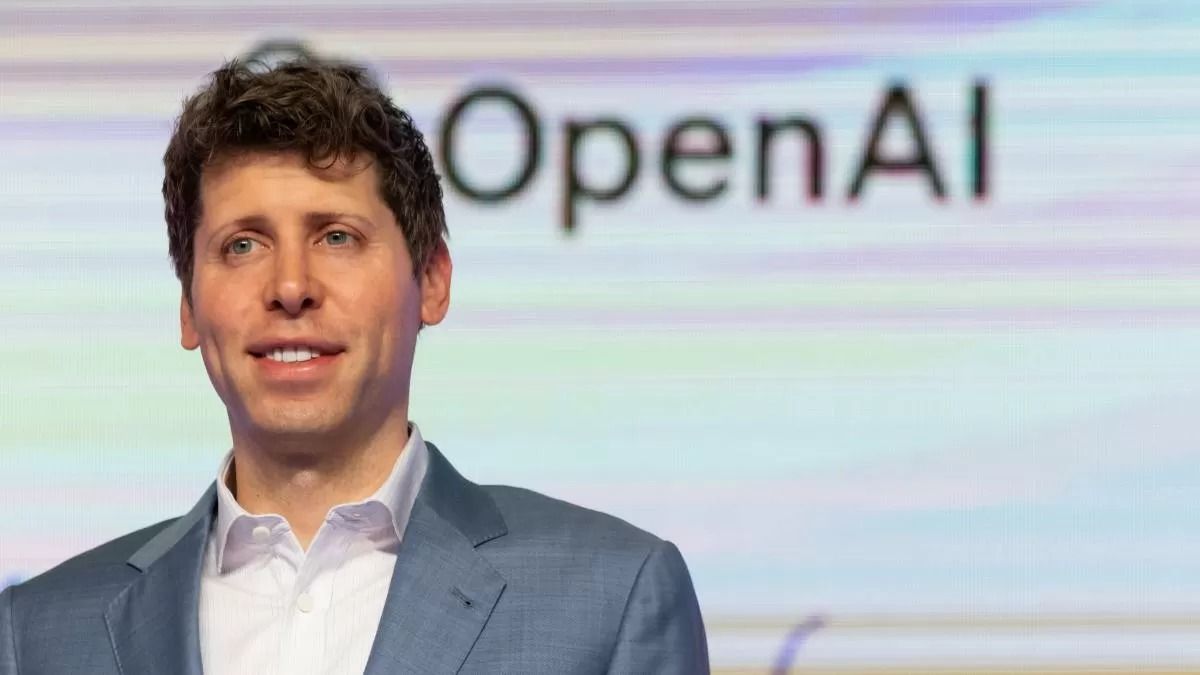
It is in this background of this multifaceted debate that the historical address by Pope Francis, the Spiritual Head of Catholics, at the G7 special session on ‘The perils and promises of AI’ acquires special significance. The Pope spoke at the session held in Puglia, Italy, on June 14, 2024. Through this he became the first Pontiff to address a G7 Summit.
However, this was not the first time he talked about Artificial Intelligence. The Argentine Pope himself has experienced the power of AI, which is why he termed it as an “exciting and fearsome tool”. All of us might remember a deep-fake photo of the Pope with a white puffer jacket which went viral in 2023 and some even thought that it was a genuine one. The Pope dedicated his message for the World Day of Peace on the theme of “Artificial Intelligence” in January this year and called for an international treaty to ensure that AI is developed and used ethically. He said “We must make sure that artificial intelligence is put at the service of peace in the world, rather than being a threat.”
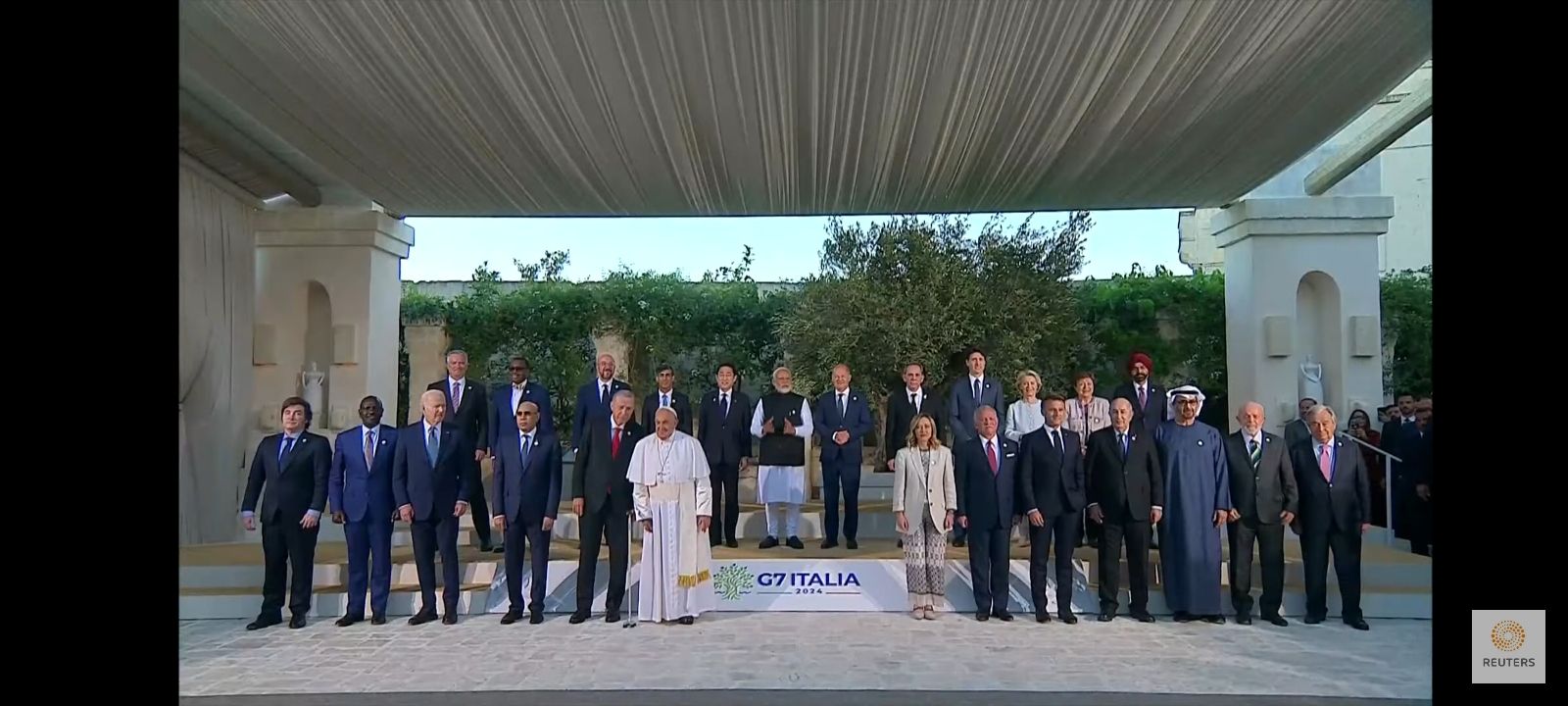
The crux of his argument was that a technology lacking human values of compassion, mercy, morality and forgiveness is too perilous and there is a need to develop checks on it. He did not repeat that call explicitly in this session, but he did raise an alarm on some key issues before the leaders of US, UK, Italy, France, Canada, Germany, Japan and India. The Pontiff’s call for a Human Centric AI assumes significance as the whole of both developed and underdeveloped countries are in the grip of artificial intelligence.
The Pope looked upon science and technology as brilliant products of the creative potential of human beings and talked about how artificial intelligence also arises precisely from the use of this God-given creative potential. He said “it generates excitement for the possibilities it offers, while on the other, it gives rise to fear for the consequences it foreshadows.” In his view, “artificial intelligence represents a true cognitive industrial revolution, which will contribute to the creation of a new social system characterised by complex epochal transformations.”
The Pope highlighted both positive and negative potentials of AI. For example, the positive dimensions would include,” democratisation of access to knowledge”, the “exponential advancement of scientific research”, and a reduction in “demanding and arduous work”, while the negative impacts would be for instance, “greater injustice” between advanced and developing nations or between dominant and oppressed social classes that a “throwaway culture” would be preferred to a “culture of encounter”.
The Pope reminded the august audience that AI is “above all, a tool”, and discussed what he called the “techno-human condition”, which is nothing but the fact that “human beings have always maintained a relationship with the environment mediated by the tools they gradually produced.” We are “radically open to the beyond” which is the root of our “techno-human condition.” It is also the root of our openness to others and to God, as well as the root of intelligence with regard to culture and beauty. Our technical capacity also stems from the same root. Artificial intelligence is a more complex tool because it is not under the control of the person who uses it and the grave danger here is that it “can autonomously adapt to the task assigned to it” and, “make choices independent of the person in order to achieve the intended goal.”
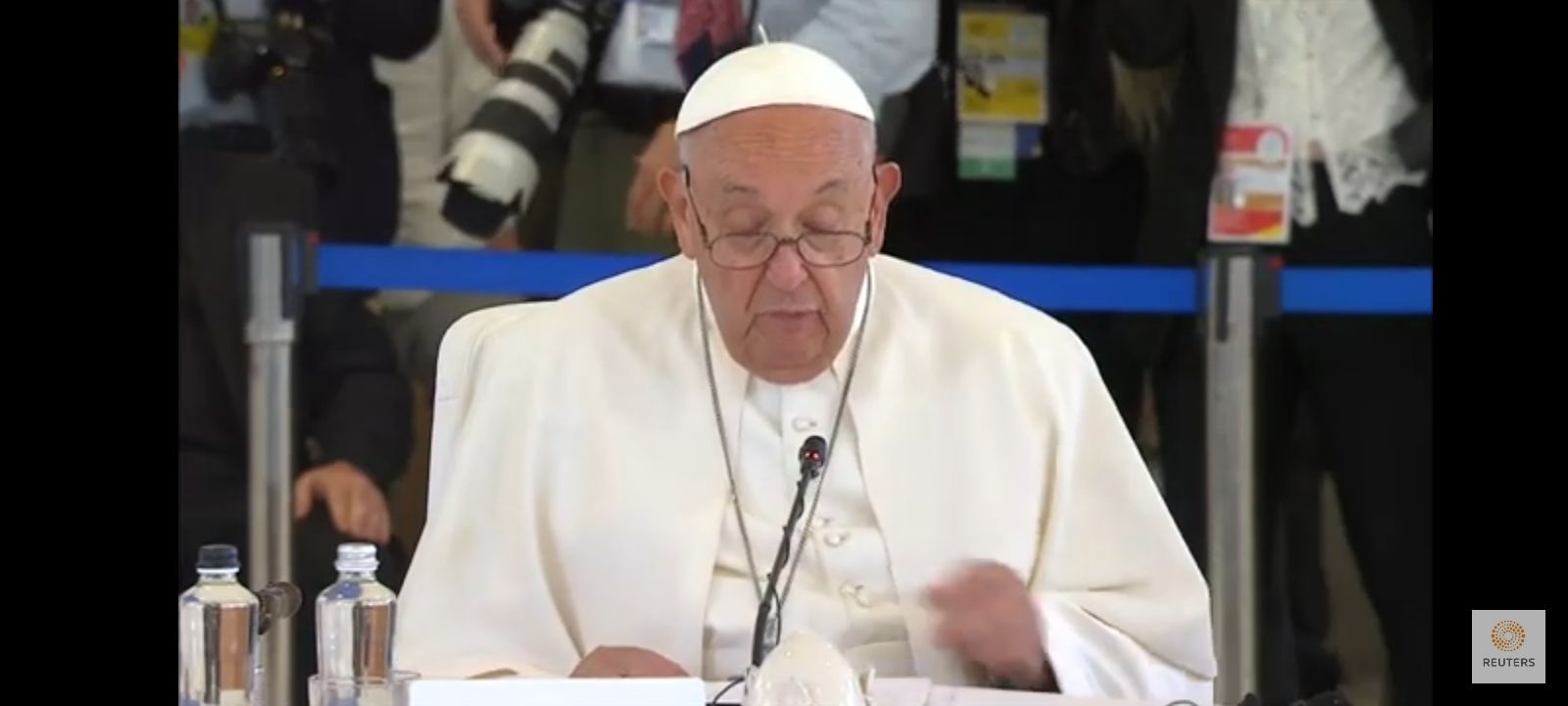
AI is capable of making “algorithmic choices” “among several possibilities based either on well-defined criteria or on statistical inferences”. Human beings on the other hand “not only choose, but in their hearts are capable of deciding.” He said “amid the difficult task of governing, we are called upon to make decisions that have consequences for many people” and human reflection has always spoken of wisdom. He asserted that decision-making must always be left to the human person. In order to ensure human dignity “we need to ensure and safeguard a space for proper human control over the choices made by artificial intelligence programs”
The Pope insisted on the ultimate banning of “the use of devices like the so-called lethal autonomous weapons” and called for “an effective and concrete commitment to introduce ever greater and proper human control.” His assertion was “no machine should ever choose to take the life of a human being”. He cited examples of “programs designed to help judges in deciding whether to grant home-confinement to inmates serving a prison sentence” and “may implicitly incorporate prejudices inherent in the categories of data used by artificial intelligence.” He said “In reality, however, human beings are always developing, and are capable of surprising us by their actions. This is something that a machine cannot take into account.”
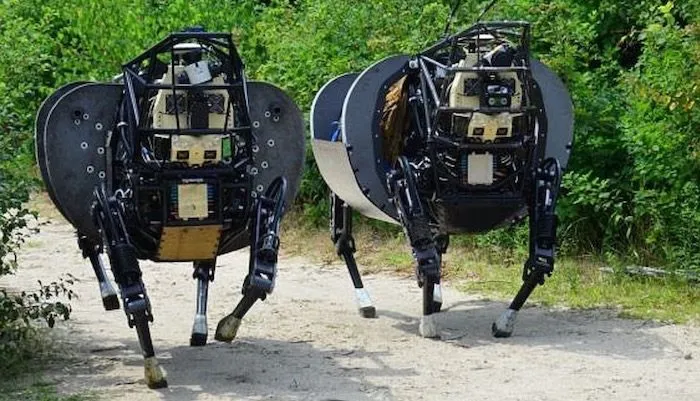
He brought to the attention of the audience the fact that AI is always shaped by “the worldview of those who invented and developed it” and called for the development of an “algor-ethics”. It is “a series of principles that are condensed into a global and pluralistic platform that is capable of finding support from cultures, religions, international organisations and major corporations, which are key players in this development.” He felt that political action is urgently needed in this regard. He concluded his speech by stating that “It is up to everyone to make good use of it but the onus is on politics to create the conditions for such good use to be possible and fruitful. “If these words of wisdom are not taken seriously by world leaders it will be a future without hope.”
Pope Francis urged leaders of affluent democracies to prioritise human dignity in the evolution and application of artificial intelligence. He cautioned that this potent technology could reduce human interactions to mere algorithms. He warned that humanity would face a bleak future if people lost their decision-making power, becoming reliant on machine choices. The Pope called for safeguarding human oversight in AI decisions, stressing that human dignity is at stake. “We would condemn humanity to a future without hope if we took away people’s ability to make decisions about themselves and their lives, by dooming them to depend on the choices of machines,” he said and that “We need to ensure and safeguard a space for proper human control over the choices made by artificial intelligence programs: Human dignity itself depends on it.”
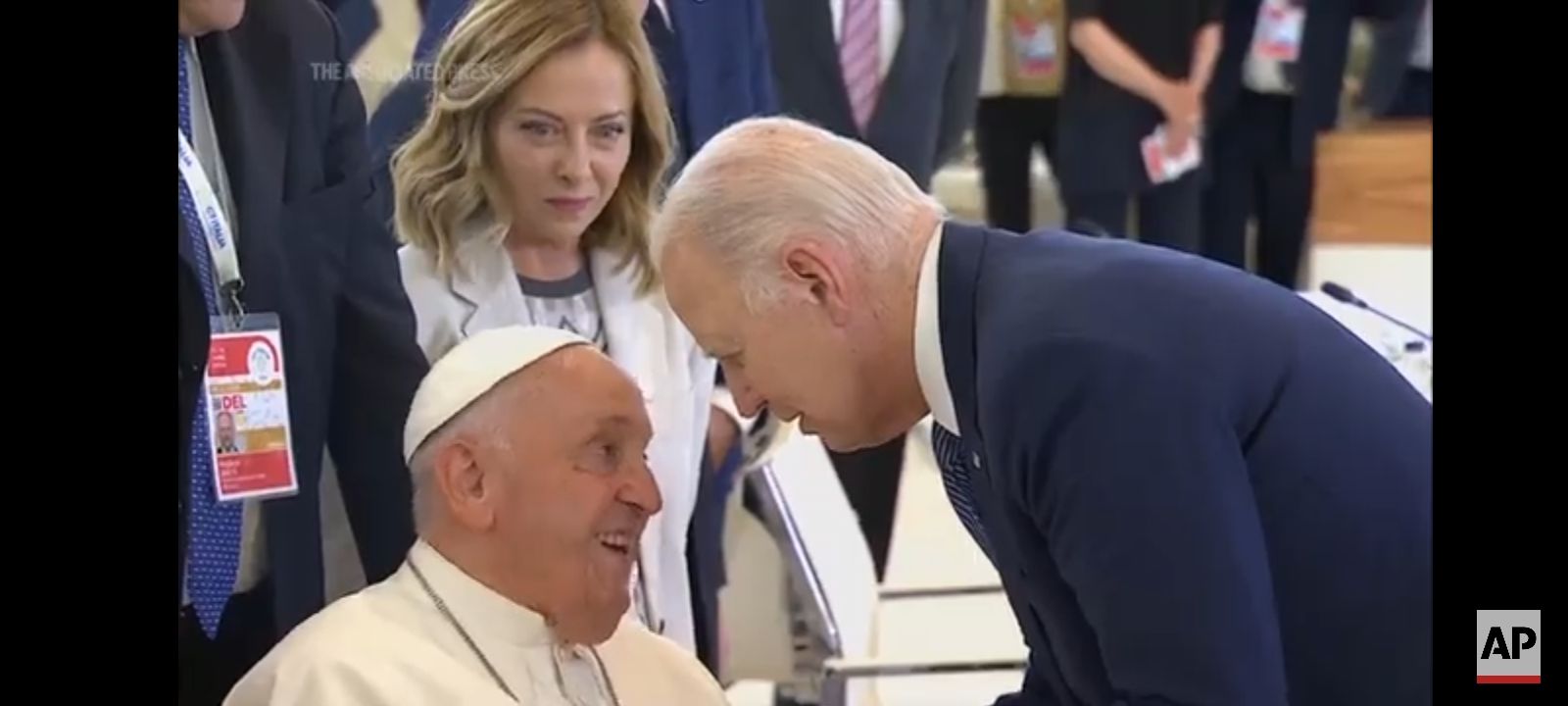
The G7 leaders’ communiqué, which had evidently imbibed the message from the Pope, said that The G7 will launch an action plan on the use of AI in the world of work and develop a brand to support the implementation of the International Code of Conduct for organisations developing advanced AI systems. The G7s commitment in managing the risks of artificial intelligence and ensuring safe, secure, and trustworthy AI will be clear in the coming days when they translate these words into action.
In this background, the points that came up at the colloquium on ‘Emerging Challenges and Scope for Peace’s session on artificial intelligence’ organised by Sevagram Ashram Pratishthan in January, 2024 in the historic premises of Mahatma Gandhi’s ashram at Sevagram, Wardha, also have a special significance. Speaking at the colloquium, renowned Peace activist and philosopher Louis Campana, who is serving as President of Gandhi International, France, expressed grave concerns about the dangers involved in the use of AI even in sectors like health and agriculture. He pointed out that it is a matter of concern for all.
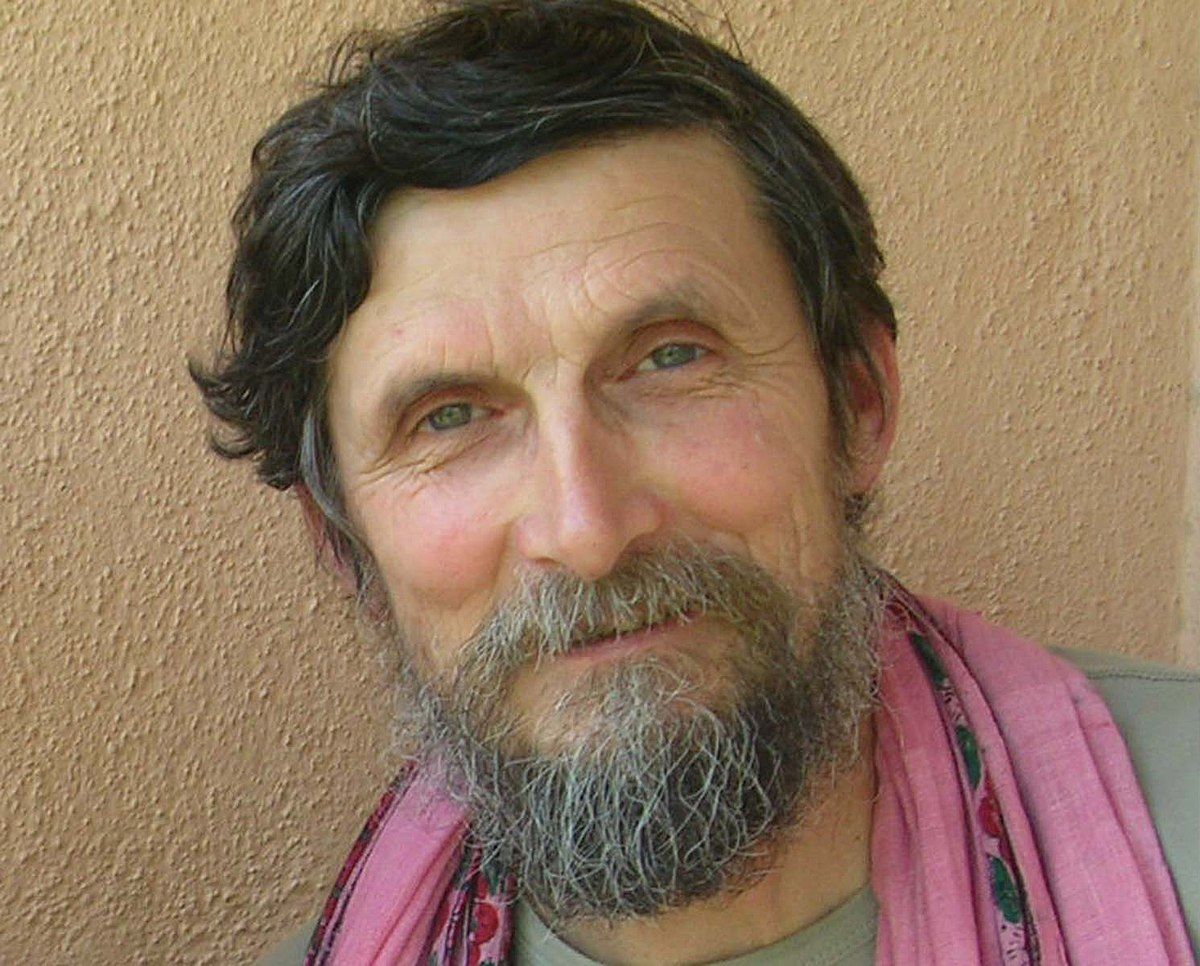
Looking at the current trends and developments, it is undoubtedly going to play an important role in shaping the very future of humanity at large. AI has been a constant point of reference in discourses all over the globe and has figured prominently in international organisations, institutions and forums. It was clearly one of the main concerns for the leaders who assembled at the G7 Summit which concluded on June 15, 2024 in Puglia, Italy. And there is little doubt that the message from the Pope’s address has great relevance in the continuing efforts to make AI a creative and ethical tool for humankind. The G7’s commitment in managing the risks and ensuring safe, secure, and trustworthy AI will be clear in the coming days when they seek to translate their proclamations into concrete measures and actions.

